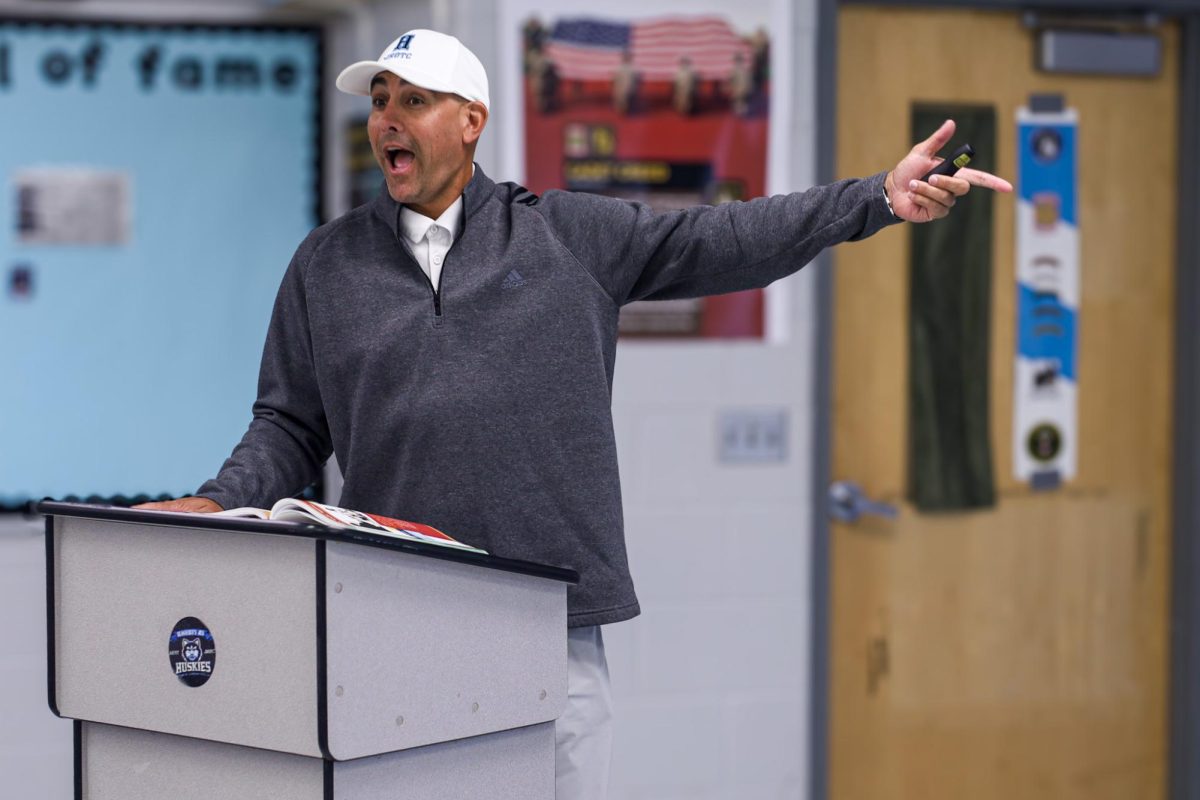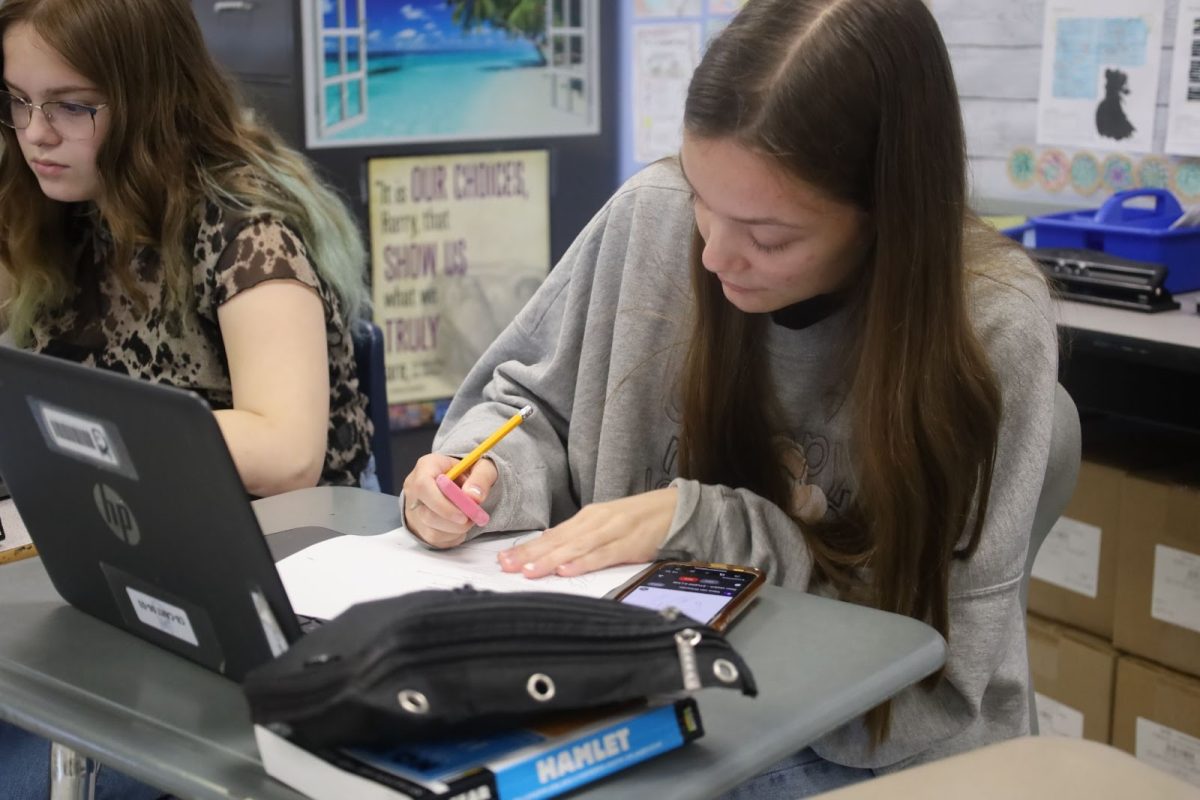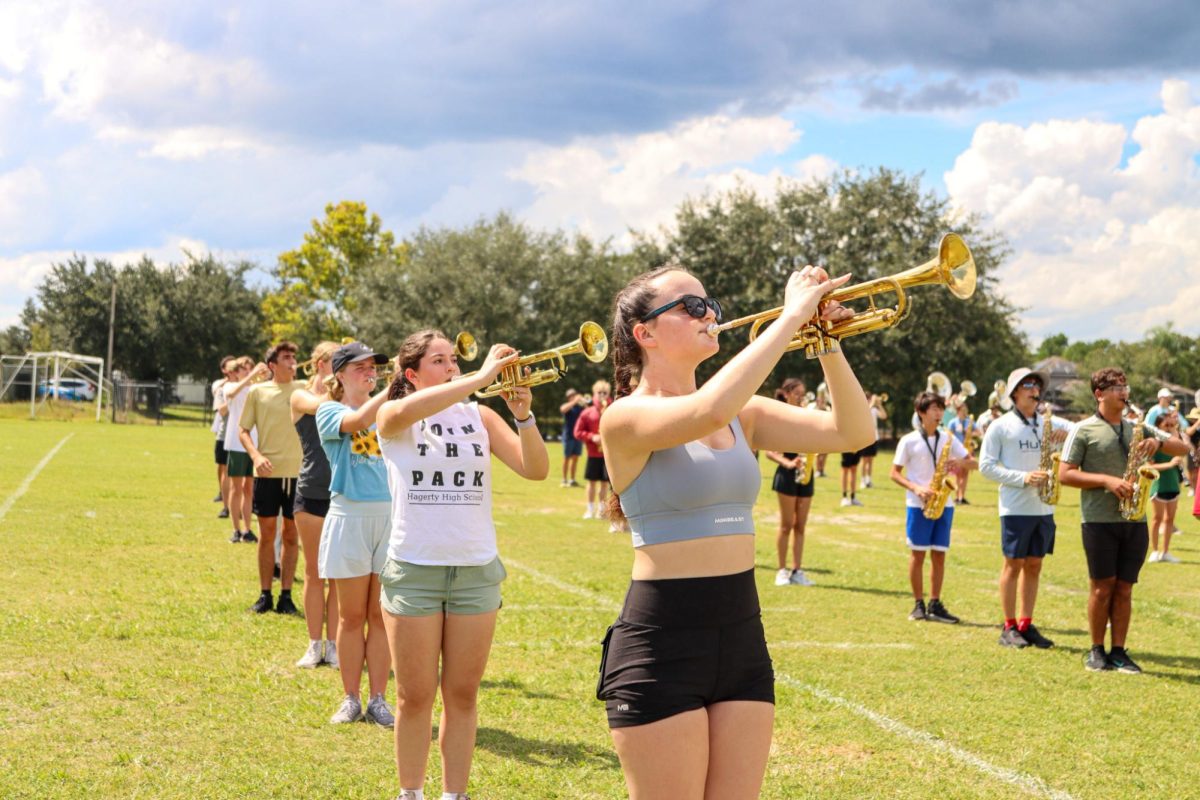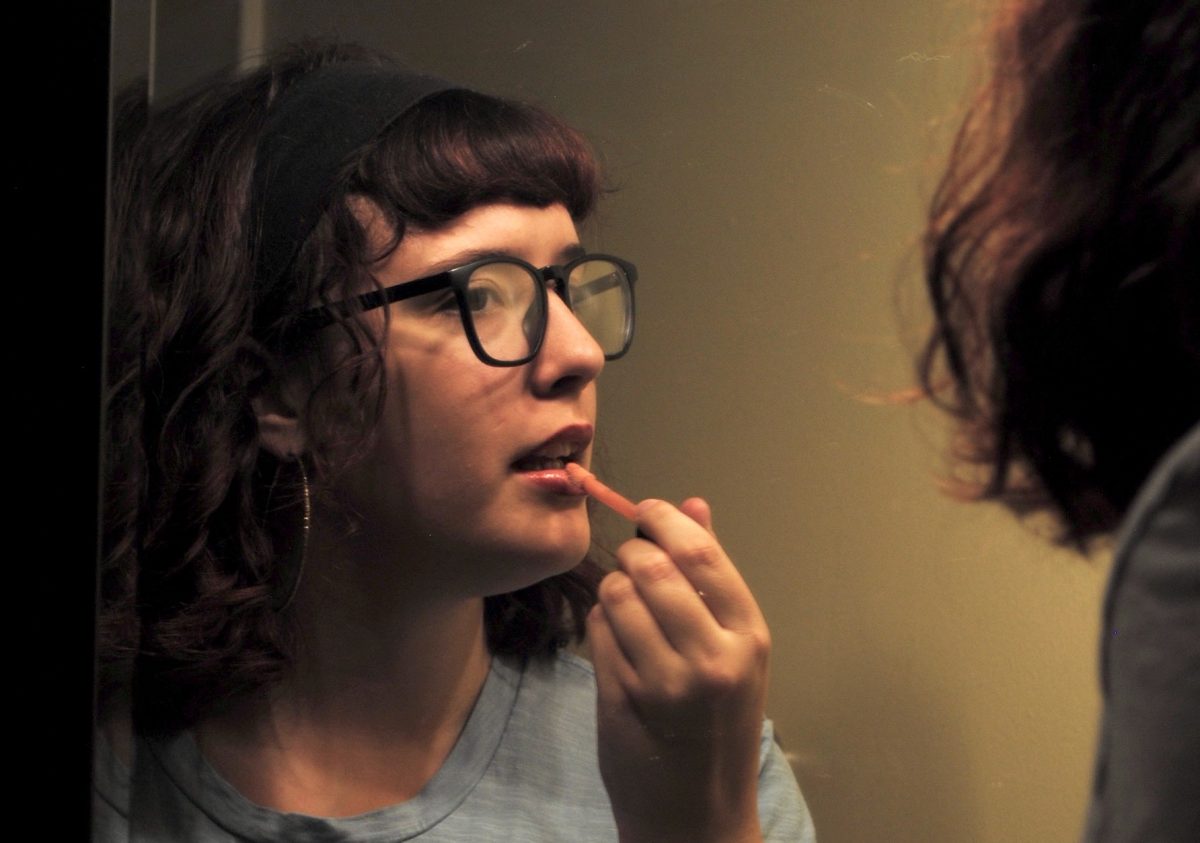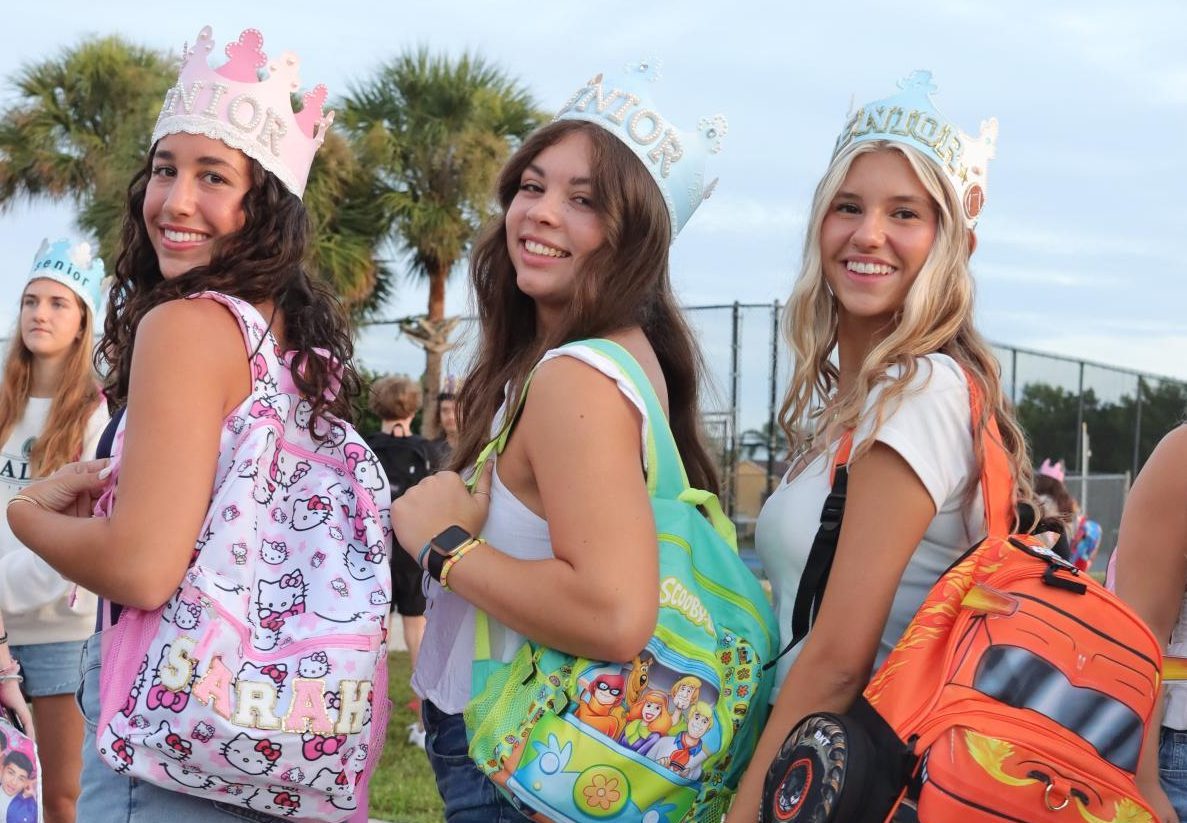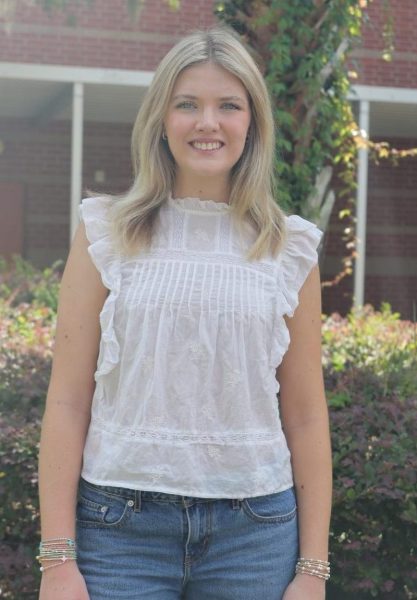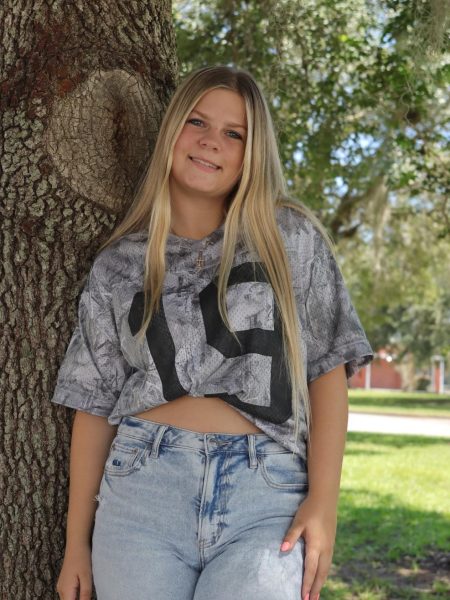When people imagine military service, they imagine officers barking orders and soldiers marching in formation. They probably don’t imagine singing on the White House lawn, like theater teacher Jamaal Solomon did when he was a part of the Air Force’s expeditionary entertainment unit, Tops in Blue.
For Solomon, it was more than a job. In one of his years of service, he participated in the Air Force Worldwide Talent Contest and was chosen to represent the best of the best by being a part of the 30-member group, Tops in Blue.
“It was our job to go out and be ambassadors for the Air Force. We went out and sang in almost every base statewide, and multiple locations overseas. When we were offered the opportunity to go sing at the White House, we did,” Solomon said.
Service members are exposed to diverse cultures, places, and challenges through deployments and training, fostering a sense of adventure and a new global perspective. During her time in Afghanistan, English teacher Gina Pereira witnessed the remnants of past conflicts such as rusting Russian tanks and downed planes.
“I ended up doing a lot of convoys across the country in Afghanistan…and we would drive across the country and see a plane down, or a tank that was just still there, which was really weird,” Pereira said.
According to the National Center for Education Statistics, there are 5.6 million teachers who are veterans. At Hagerty, nine staff members served in the military before entering education. Major Martin Johnson (ROTC), Master Sgt. Daniel Weber (ROTC), James Baird III (Social Studies), Melissa Barnett (Clerical), and Carla Hanson (ESE) served in the Army. Solomon served in the Air Force, and Pereira served in the Army and Marines. Ruth Casiano (Social Studies) and Keith Miessau (Science) served in the Coast Guard. For each of the nine, there are many unique stories about their experiences.
For Weber, a Junior Reserve Officers’ Training Corps teacher, the switch from serving in the Army for 22 years to becoming an educator was driven by his passion for mentoring the youth.
“I acquired a desire to share my experiences while having a commitment to instilling leadership and discipline in the next generation,” Weber said.
Solomon was inspired by his time working in youth theater after the military to become a teacher and finish his degree at Purdue University, majoring in liberal studies.
“I saw that there was a need for more male teachers because there aren’t enough, and young men also need to see that they are valued,” Solomon said.
Many people also use the military as a stepping stone to shape their future. Barnett joined the military at 18 to fund her college education. Although she initially dreamed of teaching, she found her path altered by her time in the Army. After leaving active duty and moving to Florida to care for her mother, Barnett found her way back to education at Hagerty. Her time in the military provided many life lessons that helped her adulthood and career. She said that the military taught her patience, detail orientation, and self-resiliency.
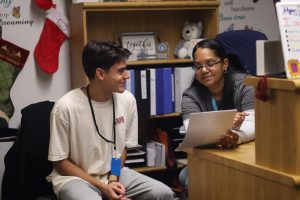
A lesson from Barnett’s sergeant major that particularly resonates in her current role: “Doers do and checkers check,” a reminder that accountability and initiative are key.
Pereira also credits her military experience for shaping her teaching approach. She said that the military gave her various opportunities to exhibit leadership skills, such as being in charge of younger soldiers. This showed her how much she enjoyed the training and teaching aspect of her job. Her desire to become a teacher blossomed from her military service, and now she encourages her students to foster deeper connections with their peers.
“The military taught me to care deeply about others and to always strive to be better because others rely on you,” Pereira said. “You foster connections with those you’re guiding, and that principle has helped me engage with students.”
Solomon’s teaching approach has been impacted by his military service. He has fought in Iraq and traveled to 16 countries in the Middle East, including Afghanistan, the United Arab Emirates, Iran and Qatar. He says the military taught him patience, responsibility, and a sense of duty and honor—all things that translate well to teaching.
These educators’ stories serve as a powerful reminder of how the skills learned in the military—discipline, leadership and a commitment to excellence—can translate into the classroom.
“You need lots of patience to do the things in the military, the same way you would have to have patience in teaching,” Solomon said.


